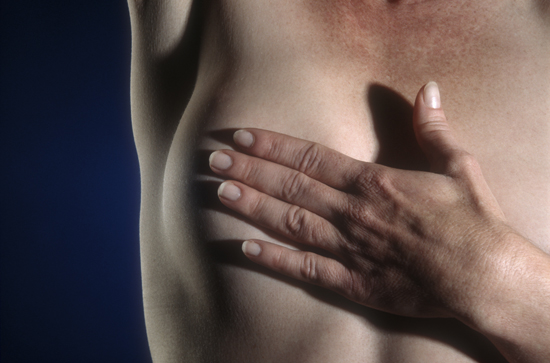
Despite the rumors, nipple piercings cannot increase your risk of breast cancer.
One of the more unusual breast cancer myths gaining popularity these days is that nipple piercings increase the risk of the breast cancer. The short answer to this question is a resounding no, not at all. No studies exist linking nipple piercings and breast cancer.
Why is this particular myth gaining traction? One reason is the increasing popularity of nipple piercings themselves, especially among young women. More likely, though, is that nipple piercings have been linked to a myriad of other health problems. While nipple piercings may not cause cancer, they can lead to infection, scar tissue development, disease, and painful abscesses. In the interest of complete breast health, we’ll take a look at potential problems that can arise from nipple piercings:
Infection
Without proper care, any body piercing can lead to infection, and nipple piercings are no exception. Given the sensitive nature of the tissue, nipple piercings can take up to 18 months to heal completely, and are vulnerable to infection throughout that period. This kind of infection can cause scar tissue, which might lead to problems breastfeeding.
Abscesses
New research has linked nipple piercings and the development of breast abscesses, or painful lumps of pus that can form just under the skin. As we have written about previously, there are many kinds of breast lumps, many of which have nothing to do with breast cancer. In many cases, though, abscesses can be quite painful and require draining or surgical procedures.
Sanitation
Proper sanitation is a must if you are considering a nipple piercing. Without using sterile techniques, there’s a substantial risk of transmitting hepatitis viruses and other diseases. It may go without saying, but under no circumstances should you attempt to pierce your own nipple or have a friend do it for you.
In any case, if you do choose to pierce, it’s especially important to take an active role in your own breast health. Keep an eye out for any possible symptoms of potential concerns, and be sure to complete regular breast self-exams.
As always, if you have any lingering questions about your breast health, schedule a clinical breast exam and have an open, honest conversation with your doctor about your concerns.